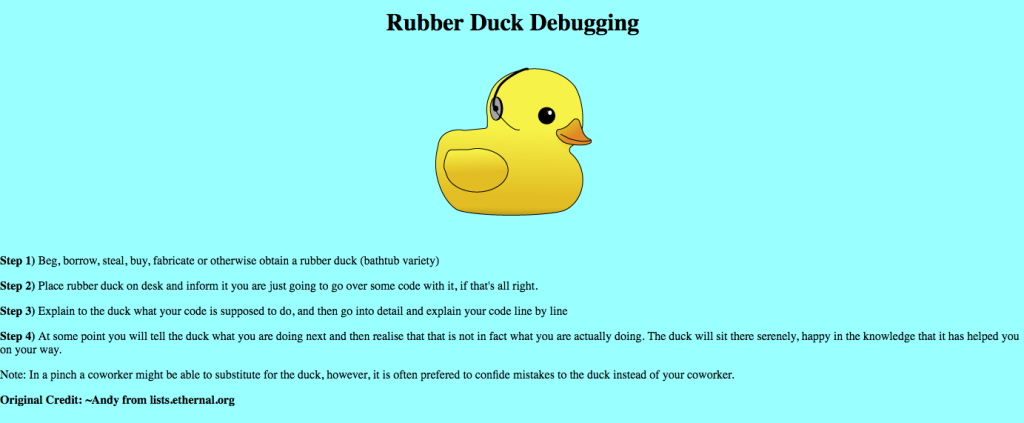
You might be familiar with the concept.
Urban Dictionary provides two on point definitions for the struggle bus:
Used to metaphorically describe a difficult situation, as in hard schoolwork.
…and…
The state of doing anything simple and struggling an inordinate amount with it. Tends to happen after a long period of time without sleep.
Urban Dictionary also notes that:
The word struggle can also be used in conjunction with other modes of transport, describing the depth to which one is struggling(i.e. struggle scooter, struggle skateboard, struggle footwear).
Good to know!
The struggle helicopter is real. While it may look different for developers, or for writers, or for whatever it is that you are doing that is different than those two things, some of the tips we use to get out of our own ways and get back to productively working can be applied across the board.
The first step is recognizing when you’re on the struggle segway.
According to Marcus, his struggle bus looks like long nights, less personal time after work hours, getting repeated notification from one of our kickass project managers, and the quickly approaching deadlines headed his way without seeing much progress.
For me, it looks like procrastination. Suddenly, I need to clean everything in my house, call back family members I haven’t talked to in awhile, organize all of my jewelry, etc. It can also look like staring at a blank page or perusing io9 obsessively or falling down the wikipedia hole and not being able to figure out how I just wasted an hour or two.
Part of the issue may be the way you’re approaching the problem.
Like how staring at a word too long can make it meaningless, looking at the same problem over and over again may keep you stuck in a rut. You need to look at the problem differently. But how? Well, there are a few ways!
Rubber duck

The above is from RubberDuckDebugging, and explains it pretty thoroughly.
Before starting with WDS, I had no idea what “rubber ducking” meant…until I accidentally did it myself. I’d ping one of my colleagues, going, “Ahhh! This is outside of my purview! I don’t know how to fix xyz problem!” and then, while waiting for a response, I’d often talk myself through the problem…and to the answer I needed. I don’t know how many times one of my coworkers has received a slew of messages that end with, “Nevermind! I figured it out!” They’d respond to me, “Oh, you rubber duck-ed,” and thus, I was introduced to the concept.
Talking out a problem to someone else and trying to explain it is a great way to get your mind to look at a problem in a new light. It’s similar to when you’re trying to teach someone something that you know; the process of detailing out what you know (or what you don’t know) to another person (or to your rubber duck) allows you to look at it with a different, sometimes more comprehensive slant, and you end up learning in the process.
Talk to your team
Get outside input! When rubber duck-ing has failed you, an outside perspective may offer insight to help you get going…even if they aren’t directly offering advice! If you have someone on your team who is more experienced than you, make sure to ask them for their help before they leave for the day; they will be able to advise you on what your best next steps will be based on their advanced experience and skill.
Work on a DIFFERENT problem
Focus on something different and give your brain a little space to process the problem you’re stuck on. Per Justin’s instructions, make sure you SET A TIMER. After you’ve spent a little time divorced from your struggle sneaker, you can head back to it and see if you’ve reset your perspective.
Don’t just dive in; try to create a map for the solution and the end result
What are you trying to do? What is the end goal?
Start at the goal and work your way backward; you may answer your own questions by breaking down the pathway from finish to start.
Put some tunes on (or ambient noise in the form of radio, etc., whatever you prefer) and try again
Music can help you stimulate your brain; it has been suggested that a small amount of ambient noise can actually help you be more productive and creative.
Turn on something good (try some of Damon’s tips if you’re totally stuck), get into the groove, and try what you got stuck on again.
Change location
In our case, we often work from our home offices, so changing up the location can be completely leaving our houses and hitting up a cafe, or even as simple as moving from the desk to the kitchen table (if leaving the location isn’t possible). If you work in an office, you can still do this–move to the other side of the room! Try sitting outside!
For me, this often means I’m dancing between my reading chair, my table, the floor, the bed, and a cafe down the street. Even such a small shift can feel like hitting the refresh button (and if I leave the house, I have an opportunity to dress like a real live adult person, rather than a rumpled ragamuffin–my typical work from home uniform).
Write it out
All three of us had a form of this on our list of tactics for combatting the struggle rocketlauncher. Whether it’s writing out a list of questions, writing out a list of to-dos regarding the issue, or even just trying to write down anything about the issue, writing requires a different kind of processing and may jumpstart your solution.
Bonus: Try writing these out by hand, rather than on a computer. It’s a different kind of thinking, and will help get you some perspective.
Take a nap or a shower
These are the physical reset buttons that allow you to step away, think, and go into automatic mode. They’ll give you the opportunity to mull over the problem in a different way than the above suggestions.
@ecehren @Jtsternberg @MarcusDBattle Talking the struggle bus at #wdscamp Great pointers! pic.twitter.com/IOubJCeFXX
— Jay::get_instance() (@plugish) September 17, 2015
Marcus had some wise words to sum this all up:
The bus is psychological and intellectual. For me, I had to realize what causes the bus to break down, and prepare for it. Every bus is different. You must figure out what breaks down your bus. Stop kidding yourself thinking that it won’t break down.
What puts you on the struggle scooter? What are some of your tips for getting out of it?
Comments